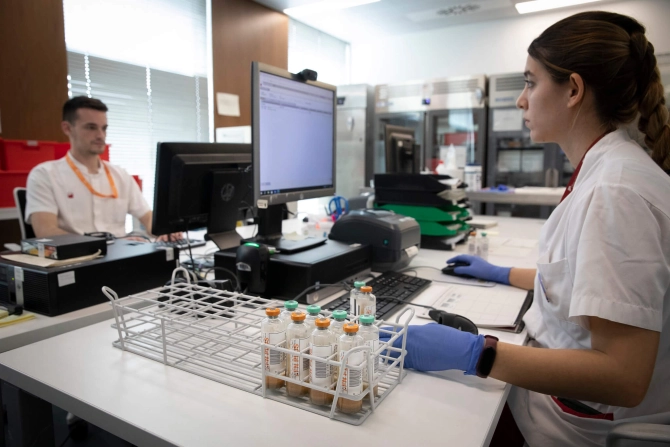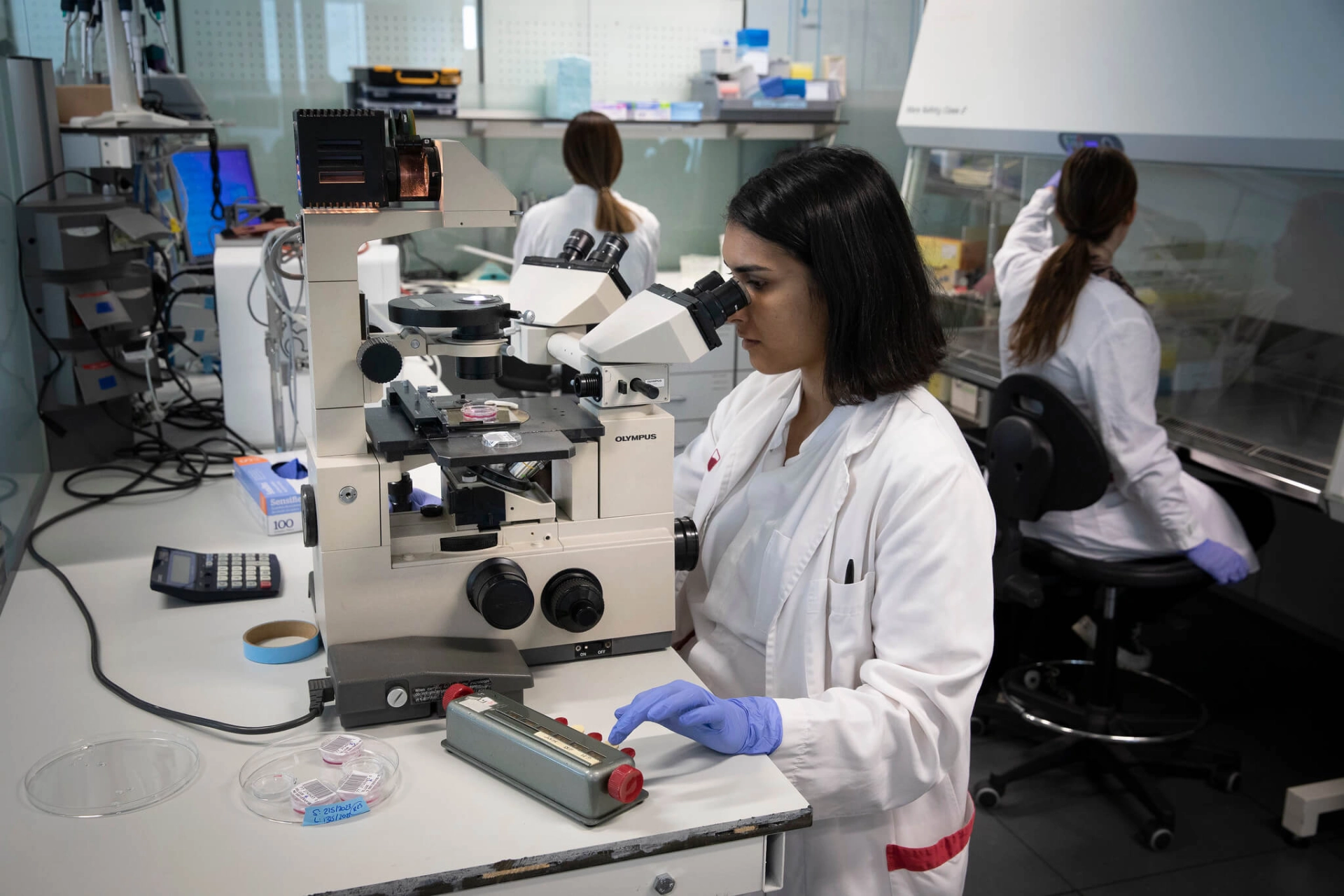Analytical Services
The laboratories of the Blood and Tissue Bank offer technology and expertise to society, acting as an external reference laboratory for health centres that send samples to them.
More than 3 million tests per year
Our mission is to ensure the quality and safety of all products, and that is why we perform the necessary analyses throughout the entire process: from donation to transfusion or transplantation.
What do we do?
We analyse all blood, milk, tissue, and cell donations to ensure they are optimal for recipients, both in terms of quality and safety.
One of our main priorities is to ensure that donations do not transmit infectious diseases, and in this sense, we are vigilant about new emerging diseases due to climate change.
We are responsible for HLA typing of all volunteer bone marrow donors and umbilical cord donations, which is essential to find a compatible donor for each recipient in need of a transplant.
Our laboratories are leaders in various areas of knowledge such as serology, immunohematology, immunology, microbiology, genomics, molecular biology, and cellular biology.
We receive samples from hospitals across the region to analyse complex cases, for example, related to rare blood groups or congenital coagulopathies.
We are a reference in Catalonia for performing fetal RhD genotyping in maternal blood, a non-invasive test that allows determining if RhD-negative pregnant women need to receive anti-D immunoglobulin to avoid the risk of haemolytic disease of the newborn.
Contact the Laboratories:
- Preanalytics: preanalitica@bst.cat
- Cellular: lc@bst.cat
- Congenital coagulopathies: coagulopaties@bst.cat
- Immunogenetics and Histocompatibility: bstlabhla@bst.cat
- Immunohematology: BSTimmunohematologia@bst.cat
- Microbiology: microbiologia@bst.cat
- Transfusion safety labserologia@bst.cat
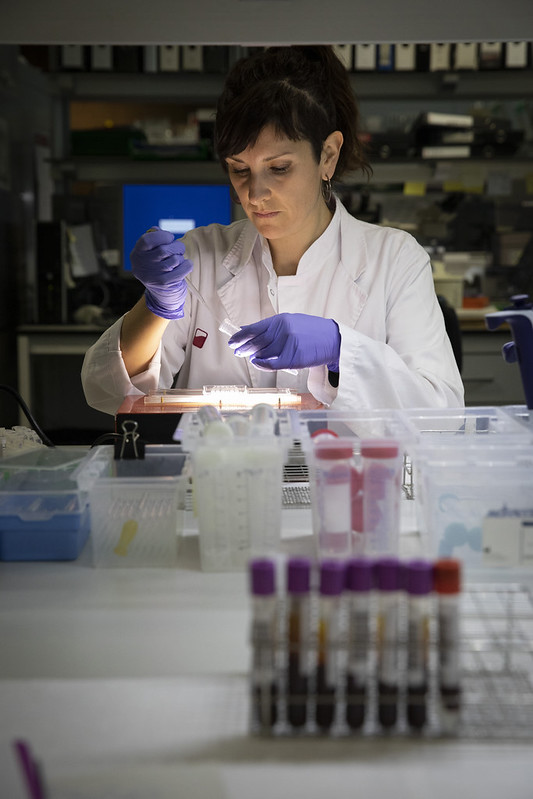
Technology and expertise
The BST laboratories are equipped with cutting-edge technology and expert staff in the fields of serology, immunohematology, immunology, microbiology, genomics, molecular biology, and cell biology.
The Immunogenetics and Histocompatibility Laboratory is the reference center for hospitals of the Catalan Institute of Health (ICS) in HLA typing and compatibility assessment between donor and recipient in the context of Hematopoietic Stem Cell Transplantation (HSCT).
It is also the reference center for the Spanish Registry of Bone Marrow Donors (REDMO) in Catalonia and the Barcelona Umbilical Cord Bank, performing all HLA studies required for registering new donors and for the verification and registration of umbilical cord units.
The BST laboratories have developed techniques for analytical monitoring of hematopoietic stem cell transplants, such as the detection of anti-HLA antibodies or molecular chimerism studies, among others.
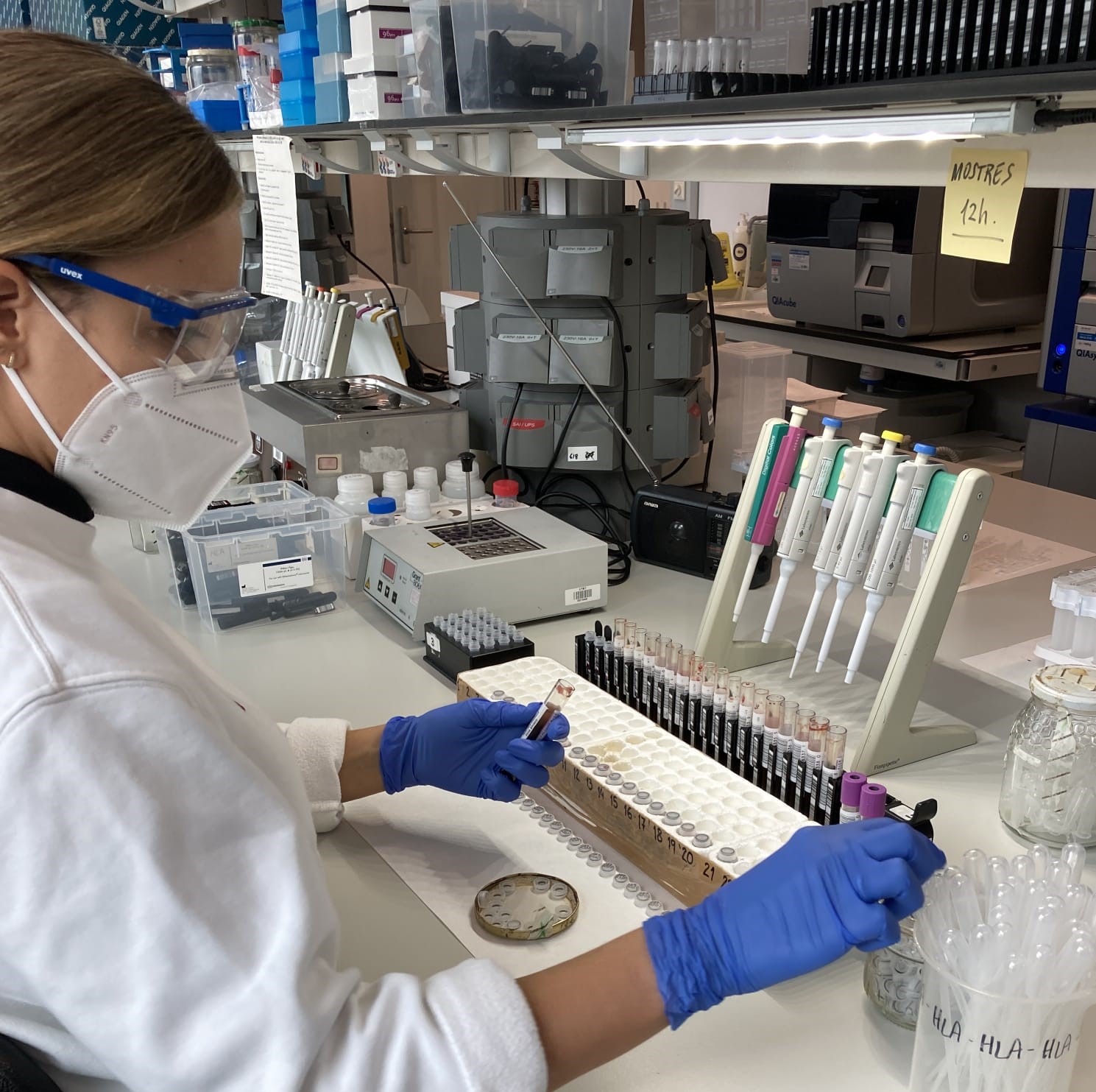
The Congenital Coagulopathies Laboratory specializes in the genetic study of patients affected by coagulation deficiencies and offers its services to hospitals across Catalonia and Spain, receiving samples for prenatal diagnosis, family studies, or complex cases.
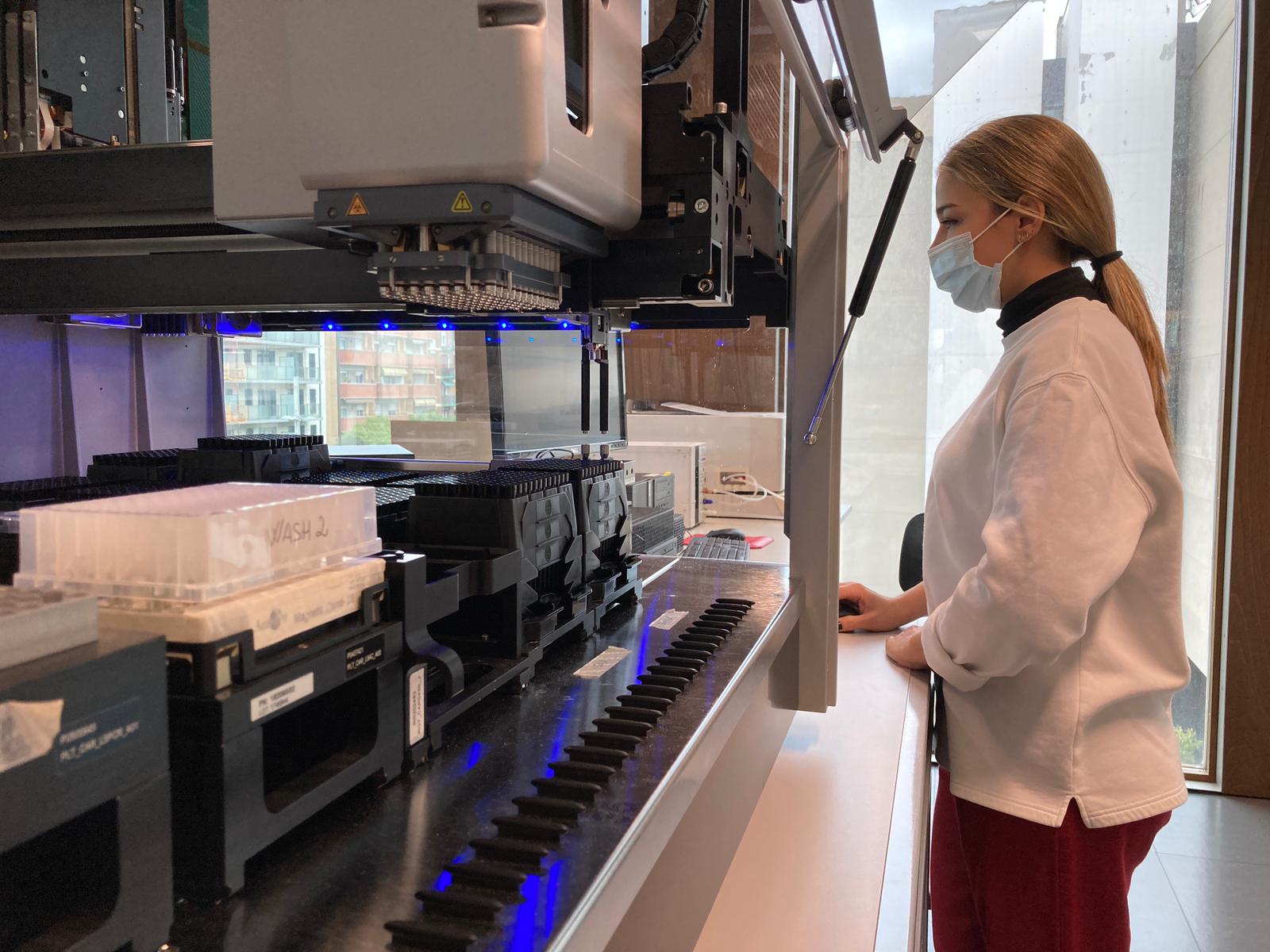
The Immunohematology Laboratory is a leader and reference center for immunohematological diagnostics and the study of blood groups. It supports all transfusion services in Catalonia, identifying causes and providing solutions to transfusion incompatibility issues faced by some patients.
It is responsible for the analytical control of pregnant women and the monitoring of those who develop antibodies during pregnancy, as well as the investigation of fetomaternal incompatibilities due to blood group antigens through non-invasive prenatal diagnostic techniques.
It is also a reference for diagnosing autoimmune hemolytic anemias, thrombocytopenias, and immune mechanism neutropenias.
It investigates immunological complications of transfusion: hemolytic reactions, transfusion-related acute lung injury (TRALI), allergic reactions, graft-versus-host disease associated with transfusion, and post-transfusion purpura.
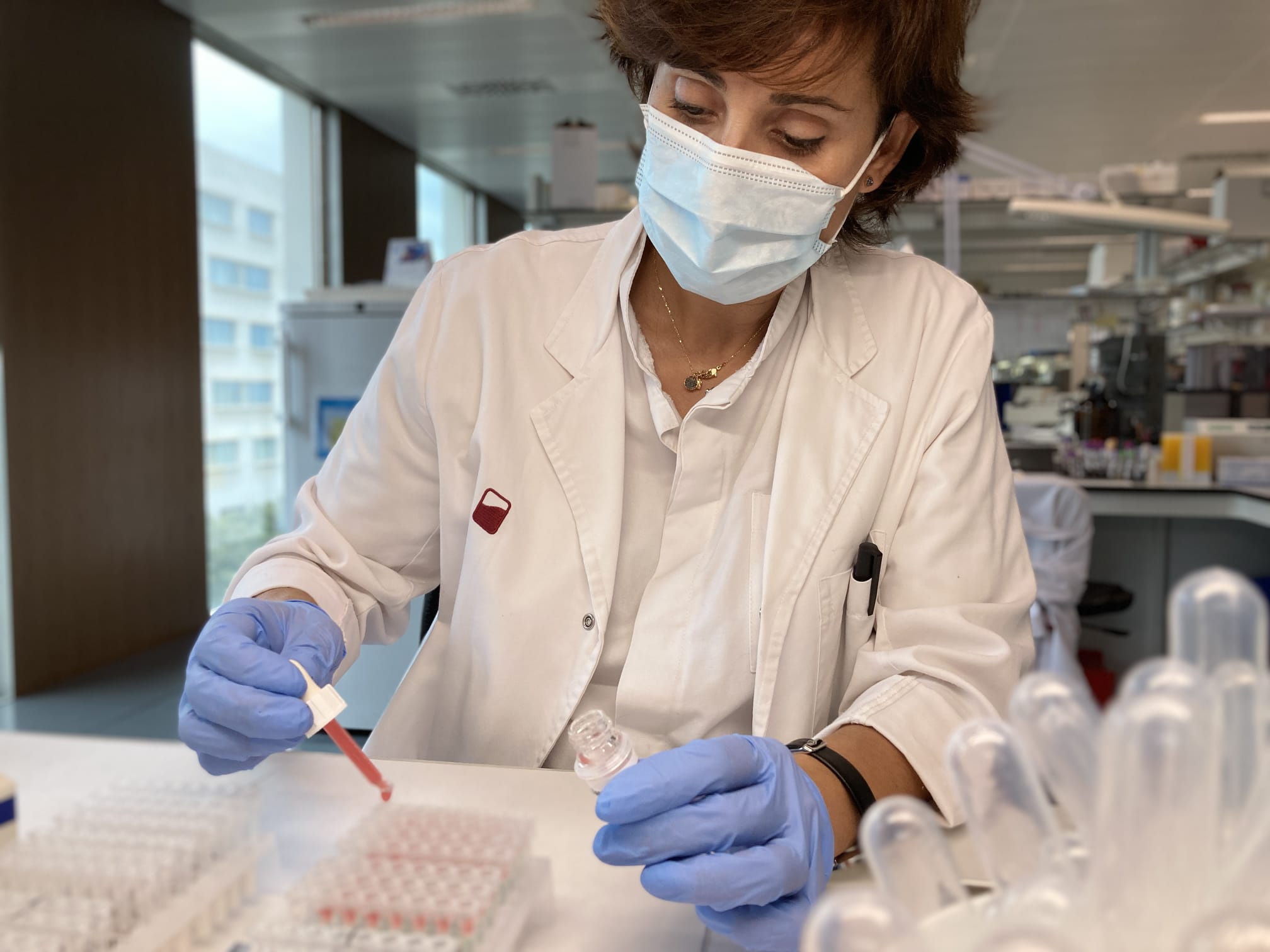
The Transfusion Safety Laboratory's main objective is to ensure the safety of recipients and donors of human-origin substances such as blood, tissue, and cell donations, while ensuring the quality of transfused or transplanted products.
It performs serological testing for infectious agents (Syphilis, HIV, HCV, HBV, HTLV, and selectively Chagas, Malaria), immunohematology for blood donors (ABO-Rh typing, anti-erythrocyte antibodies, and extended phenotyping relevant for transfusion), and nucleic acid amplification testing (HIV, HCV, HBV, HEV, and, as needed, WNV, Dengue) on various types of human biological samples: peripheral blood (serum, plasma), umbilical cord blood, breast milk, etc. It also provides screening services (serological and/or molecular) for infectious agents to third parties, such as clinical laboratories in the national and international spheres.
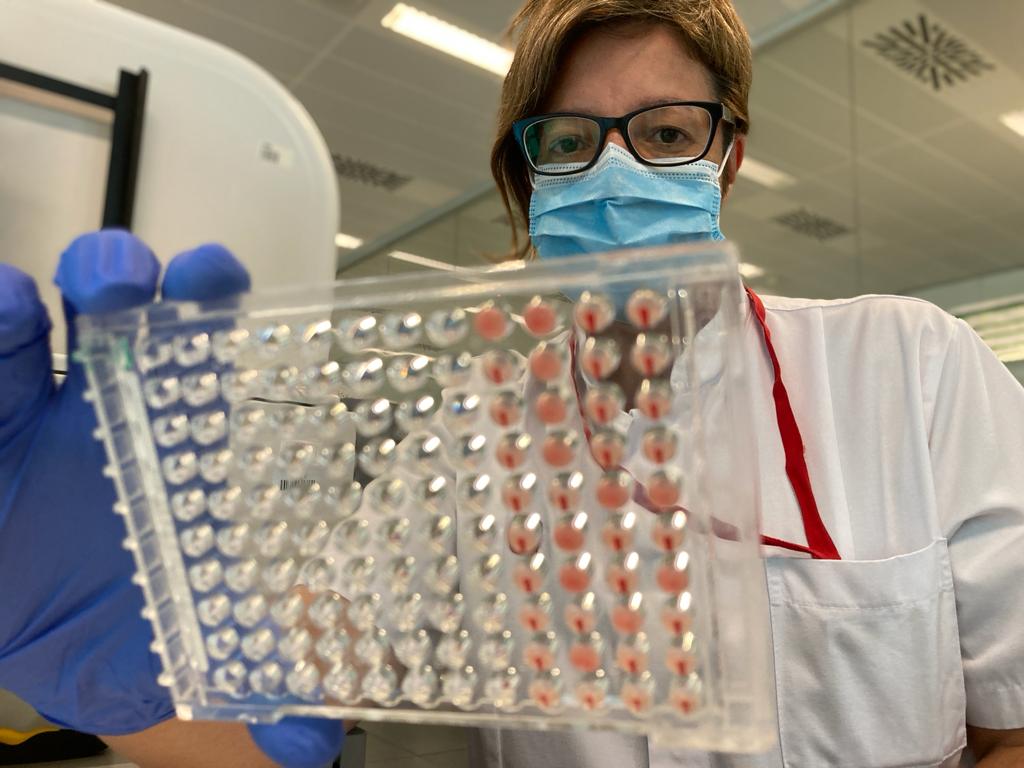
The Cellular Laboratory is an expert platform in flow cytometry, cell cultures, and cellular studies.
It performs quality controls necessary to ensure the quality and safety of all products to be transfused or transplanted, especially blood components, umbilical cord units, hematopoietic progenitors, and advanced cell therapies.
In this regard, it has specialized in developing and validating new analytical methods to support the development of new therapies.
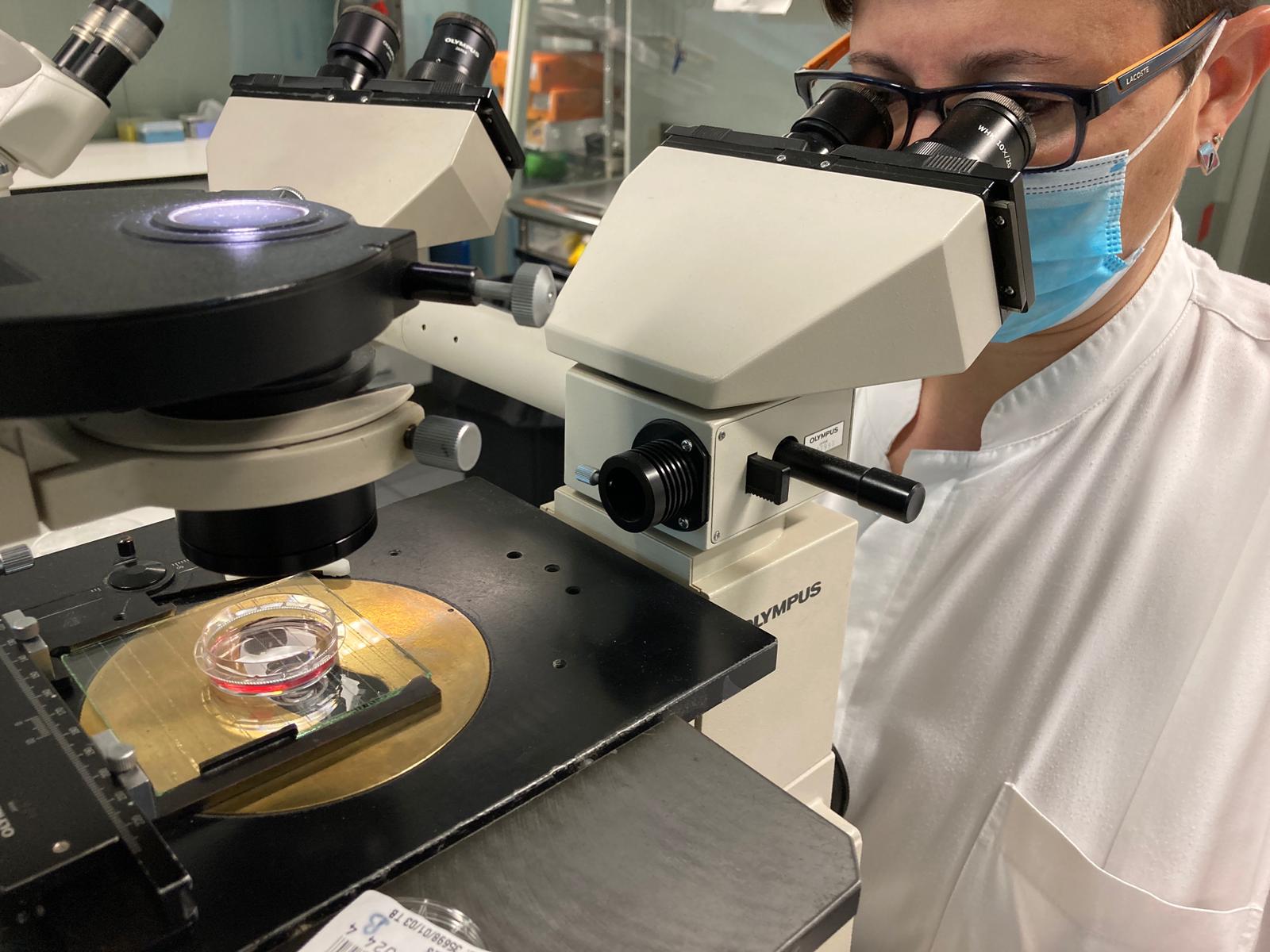
The Microbiology Laboratory uses culture-based and molecular detection methods to perform sterility controls on starting materials and final products to ensure that microorganisms that could cause infections in recipients are not transmitted.
Additionally, it conducts environmental microbiological control in classified areas of the Blood and Tissue Bank, following European Pharmacopoeia and Good Manufacturing Practices standards to ensure processing occurs in controlled environments.
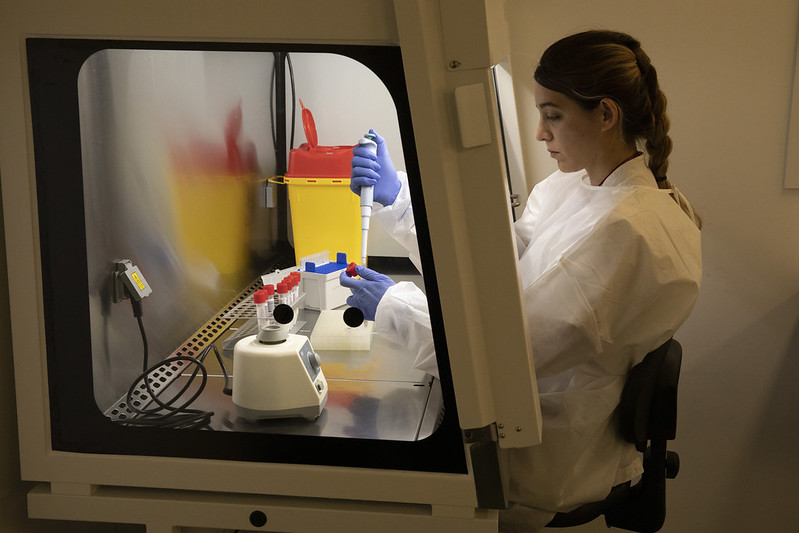
Research, Innovation, and Teaching
The Blood and Tissue Bank laboratories participate in the teaching of medical/non-medical residents (MIR, BIR, FIR) specializing in Immunology as well as medical residents specializing in Hematology and Hemotherapy.
They develop undergraduate and postgraduate teaching activities in collaboration with Catalan universities. They supervise doctoral theses through agreements with various Catalan universities. They host healthcare professionals from other countries for training stays through collaboration agreements. They welcome undergraduate students from various fields who carry out final degree or master's projects, as well as laboratory technicians in training. They organize exchange and training programs for various healthcare professionals through collaboration agreements.
The Blood and Tissue Bank laboratories are deeply involved in technological development and innovation. They are currently leaders in the application of proprietary NGS sequencing techniques for HLA typing, KIR, the study of congenital coagulopathies, and other hereditary disorders. They are advancing toward Third Generation Sequencing (TGS) and exome sequencing.
The laboratories offer technological support, training, and expert advice to researchers through genomic and cellular platforms. They provide guidance in setting up techniques such as cytometry, cell culture, library preparation, and bioinformatics analysis of sequencing data.
They collaborate closely with other national and international research groups with the aim of developing basic, epidemiological, clinical, and translational research projects. The active research programs can be consulted here.
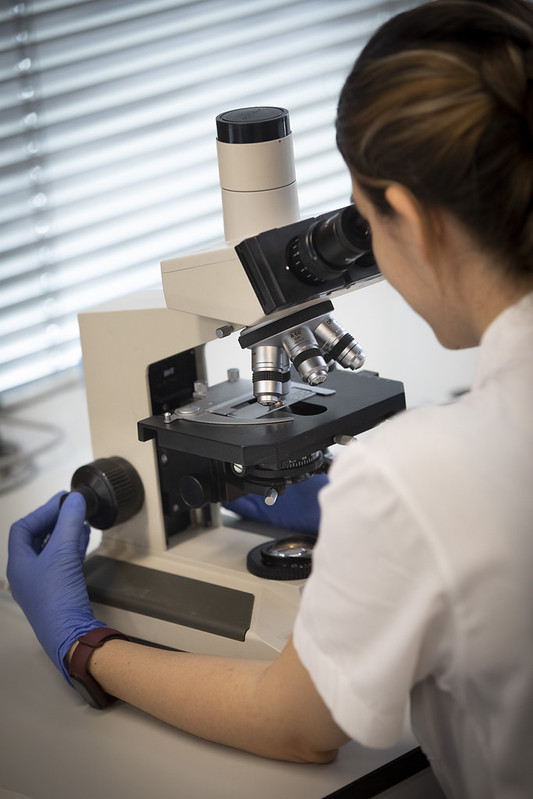
Lab Portal
Download the functionality guide of the Laboratory Portal
